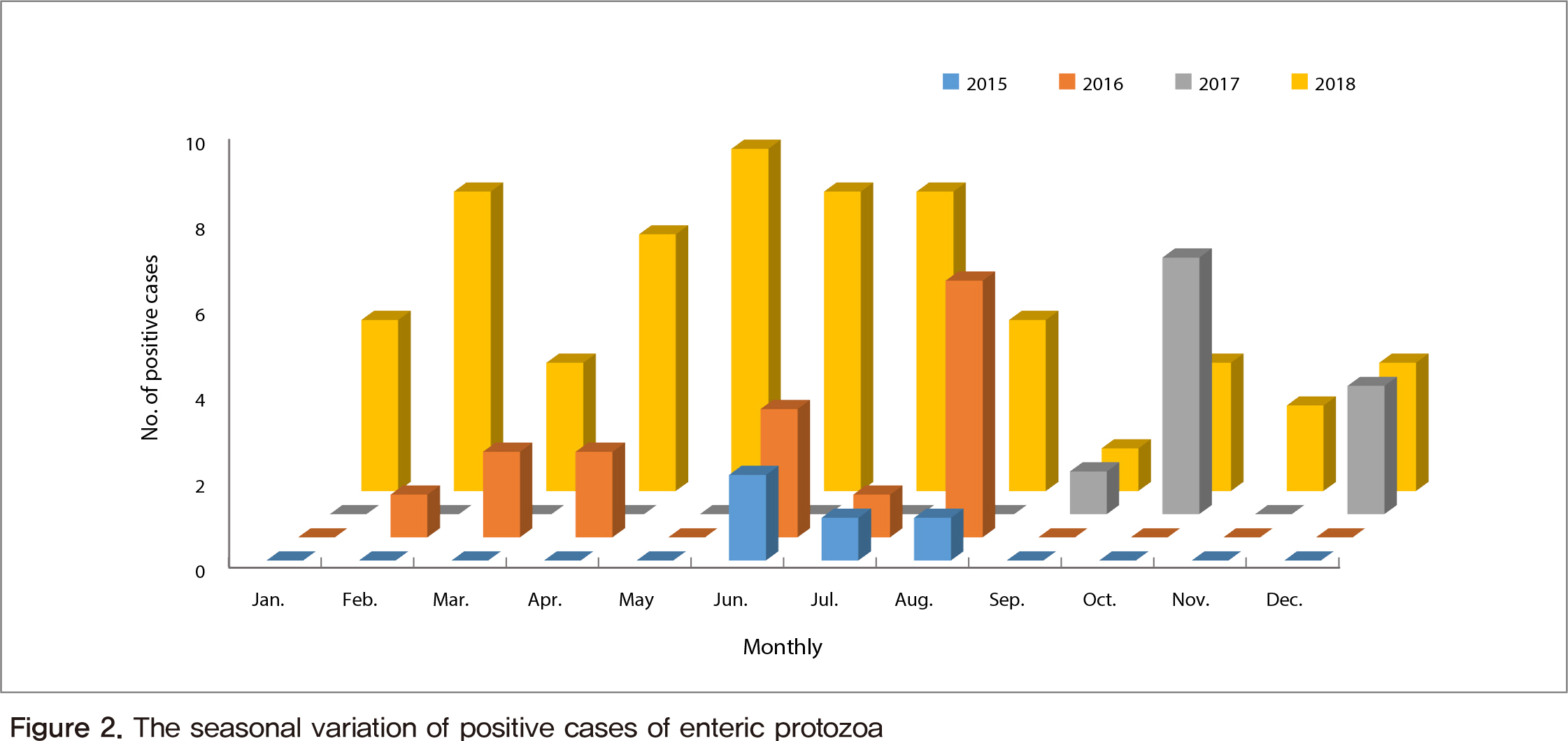contents area
Public Health Weekly Report
detail content area
- Date2019-08-14 21:09
- Update2019-11-19 18:46
- DivisionDivision of Vectors and Parasitic Diseases
- Tel043-719-8520
Monitoring intestinal Protozoa causing Water- and Food-borne diarrhea in the Republic of Korea, 2015-2018
Ma Da-Won, Ju Jung-Won, and Cho Shin-Hyeong
Division of Vectors and Parasitic Diseases, Center for Laboratory Control of Infectious Diseases, KCDC
Protozoa containing Cryptosporidium parvum, Giardia lamblia, Entamoeba histolytica and Cyclospora cayetanensis have been known as the causative agents of diarrhea in humans worldwide. These protozoans are transmitted by the fecal-oral route and most commonly by the consumption of contaminated food and water. Infections are mostly seen in young children and immuno-compromised patients. In this study, we reported results of surveillance for parasitic protozoans in patients with diarrhea from 2015 to 2018. A total of 8,652 patients with diarrhea were tested through the polymerase chain reaction (PCR) method to detect four species of protozoa. Data were analyzed per year, month, and age distribution. From 8,652 cases, 84 cases (0.97%) were positive. Among these, the rates for C. parvum, G. lamblia, C. cayetanensis and E. histolytica were 64.3% (54 cases), 19.0% (16 cases), 11.9% (10 cases) and 4.8% (4 cases), respectively. The monthly positive rates were high in June (16.7%), July (11.9%), and August (15.5%). Moreover, the ages of positive cases were high from those over 60 years old and under 10 years old, while the difference in gender was not significant. The protozoa detection rate for patients with diarrhea in Korea between 2015 and 2018 was not high compared to other countries. Recently, there is no outbreak by enteric protozoa infection, but the risk of infection is increasing due to overseas travel and increased imports of agricultural products. For the management of risk, we will establish a more advanced surveillance system to make early detection of infection and outbreaks by intestinal protozoa.
Keywords: Entric Protozoa, Diarrhea, Surveillance system





 This public work may be used under the terms of the public interest source + commercial use prohibition + nonrepudiation conditions
This public work may be used under the terms of the public interest source + commercial use prohibition + nonrepudiation conditions